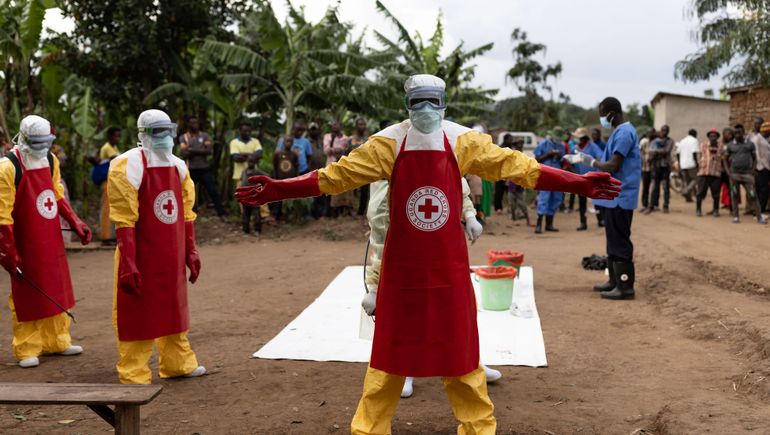Dive Brief:
- Satio has received U.S. government funding for the development of a patch-based test capable of detecting Ebola virus infections in remote settings.
- The Biomedical Advanced Research and Development Authority (BARDA) is providing the money to allow the Boston, Mass.-based company to combine its patch-based blood collection device with Institut Pasteur de Dakar’s Ebola virus immunoassay.
- Satio sees the combination providing a single, low-cost device that can quickly identify infected individuals at the point of care without exposing healthcare workers to the pathogen.
Dive Insight:
Ebola cases are hard to distinguish clinically from infectious diseases such as malaria, typhoid fever and meningitis, and from pregnancy symptoms. As such, diagnostics including antibody-capture enzyme-linked immunosorbent assays and antigen-capture detection tests are used to confirm the cause of symptoms.
Multiple companies have received emergency use authorization for Ebola tests from the World Health Organization and U.S. Food and Drug Administration, but authorities remain interested in expanding the diagnostic toolkit. That interest has enabled Satio to secure funding from BARDA, which is supporting work on “extremely mobile viral diagnostic platforms for use in extremely remote settings.”
Satio is developing dry blood spot and whole blood sampling patches that use a lancet to collect blood from the upper arm. The BARDA funding will equip Satio to combine its sample collection technology with an immunoassay to create a single device for deployment at the point of care.
The WHO has recommended the use of nucleic acid tests such as PCR technology to diagnose infection with Ebola virus, noting that “widespread use of low specificity assays will generate more false positives than true positives” when disease prevalence is low. Lab-based nucleic acid tests are sensitive enough to prevent that problem, but the WHO also accepted that point-of-care tests may be useful in some settings.
Satio highlighted the sensitivity of Institut Pasteur de Dakar’s test in its statement disclosing the funding. The medtech company has also enlisted computational biology company Sapphiros for the project. Sapphiros will use its “extreme volume manufacturing process” to keep the cost of the test down.

